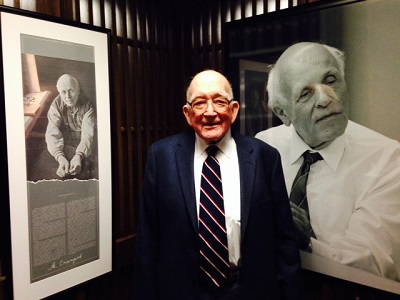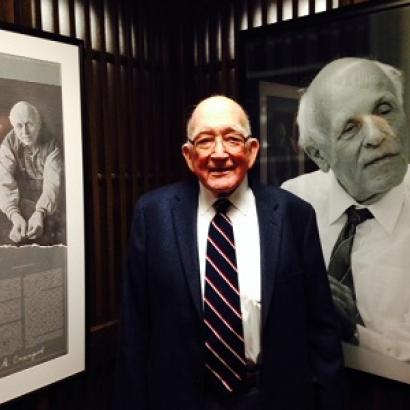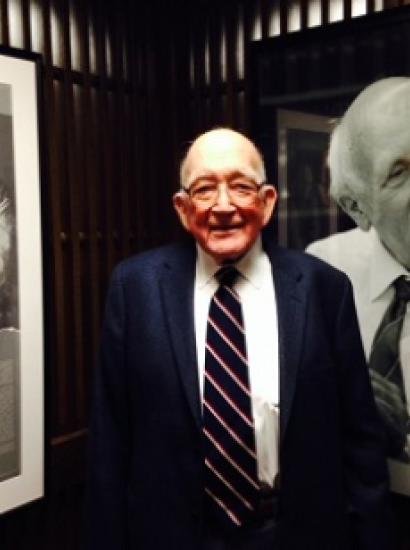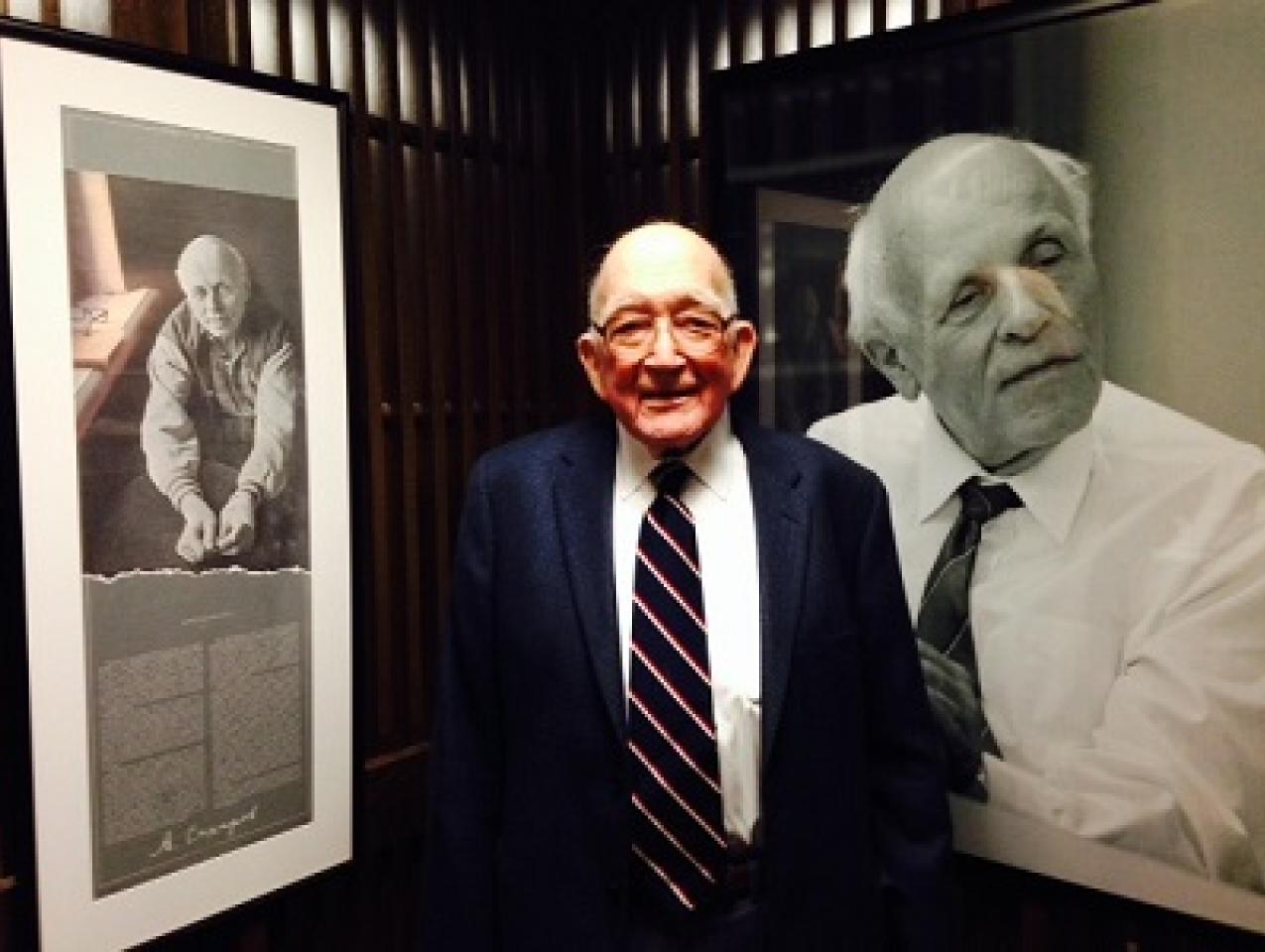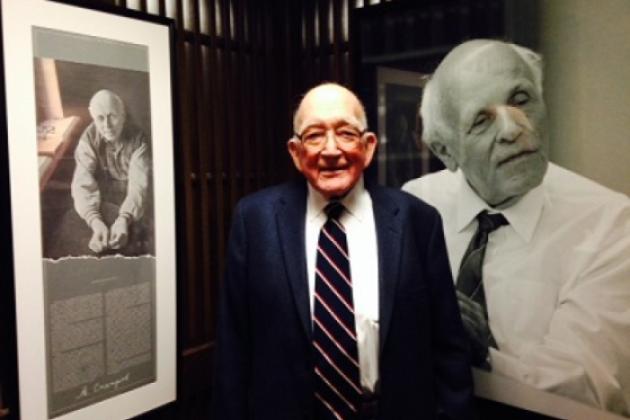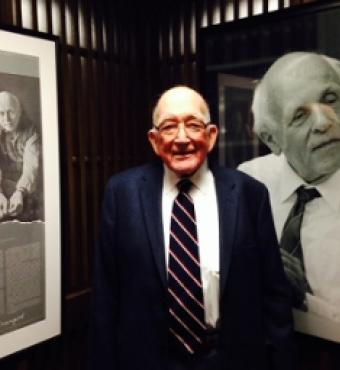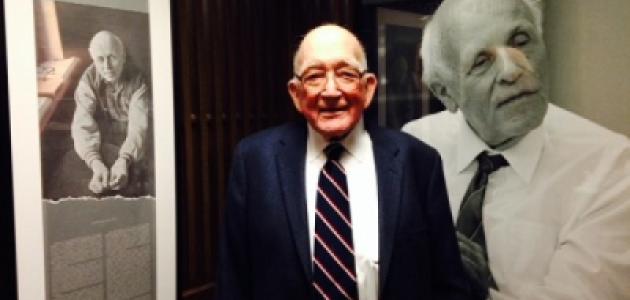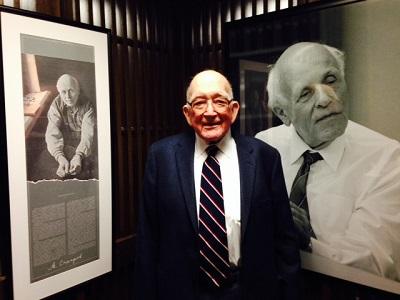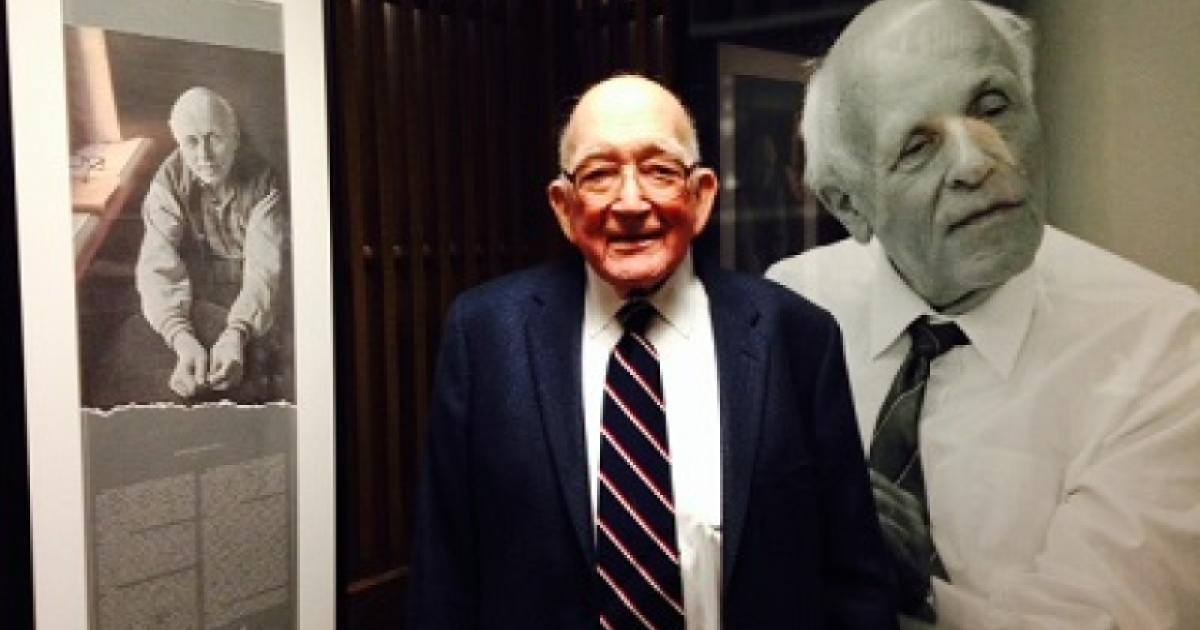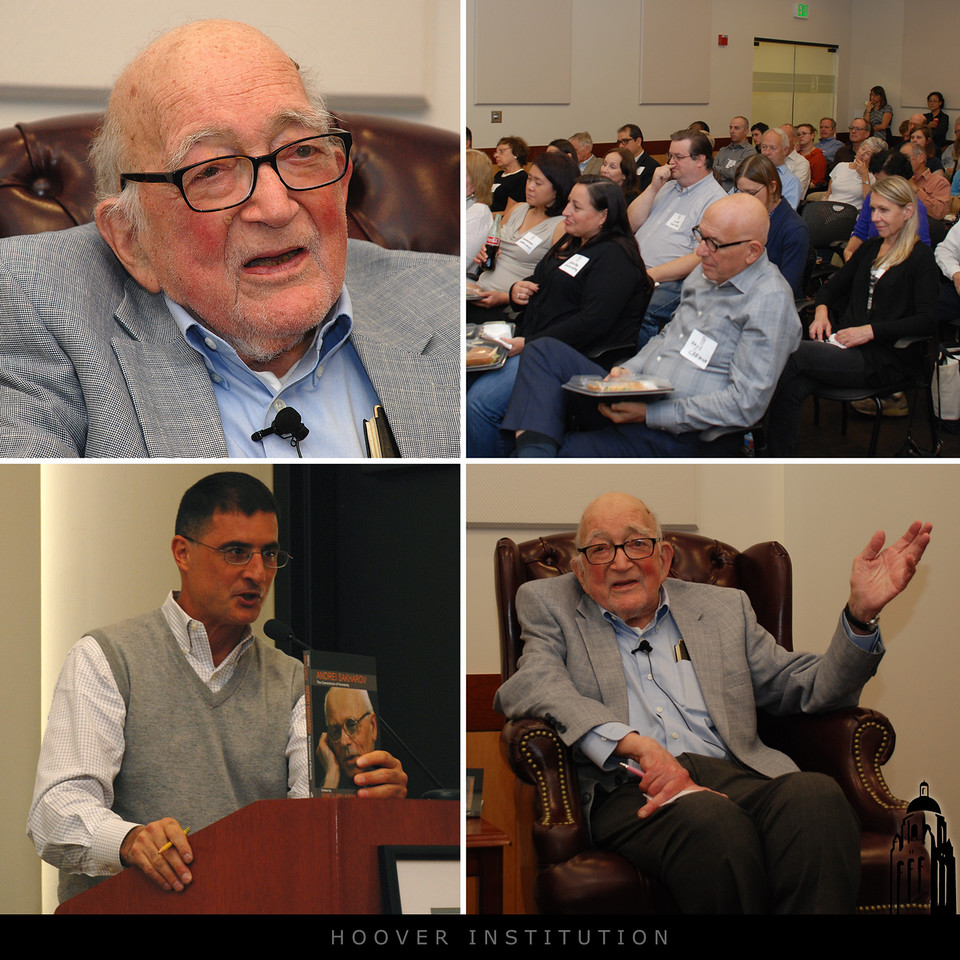
On October 8th, Hoover Library & Archives hosted Hoover senior fellow Sidney Drell as part of its History and Policy lecture series. Drell is a professor emeritus of theoretical physics at the Stanford Linear Accelerator Center Laboratory, a renowned scholar whose papers are housed at Hoover Archives, and most recently the editor, along with distinguished Hoover fellow George P. Shultz, of Andrei Sakharov: The Conscience of Humanity. During Thursday's talk Professor Drell shared with the audience the story of his long personal and professional relationship with the Nobel Prize-winning nuclear physicist and human rights campaigner Andrei Sakharov, who faced internal exile and persecution in the USSR for his continued efforts to deter armament during the Cold War. Professor Drell's book and talk emerged from a four-day conference on Sakharov's work and ideas that was held December 10–14, 2014. Hosted by the Hoover Institution, the conference brought together a wide array of scholars, military commanders, theologians, scientists, entrepreneurs, and historians interested in the intersection of technology and policy, and the legacy of a man who both built the most powerful thermonuclear weapon ever exploded (the hydrogen bomb) and afterward, campaigned tirelessly against the production of such powerful weapons of mass destruction. In conjunction with the 2014 conference Hoover archivists, led by Deputy Archivist Linda Bernard, presented a display of rare documents, letters, and photographs related to Sakharov's life, career, and human rights campaigning. In describing the exhibit Drell referred to Hoover as a "magnificent archive," noting that there is "nothing like it in the world." With its emphasis on war, revolution, and peace, Hoover Archives puts Sakharov in the wider context of influential strategists and pacifists around the globe, many of whom he collaborated with during his lifetime.
As Drell related, Andrei Sakharov began his career in science as a brilliant physicist dedicated to studying the power of fusion, believing that only the development of a "socialist" bomb in the USSR in answer to the "capitalist" bomb in the United States would create a stalemate in the Cold War. Increasingly, however, Sahkarov came to oppose the secrecy, oppression, and tyranny of the Stalinist regime, particularly as his friends and family members disappeared into the Gulag system. Sakharov spoke out against the human rights violations of the communist government, and campaigned for free speech and freedom of the press within Soviet society. His outspoken advocacy for civil liberties gained him the opprobrium of the government, whose agents spied on him and often harried him and his family. When, in 1979, Sakharov spoke out publicly against the USSR's invasion of Afghanistan, he was made an enemy of the state and put into exile in the city of Gorky. Though a world-renowned scientist by that time, Sakharov was stripped of his awards and separated from family, friends, and colleagues. During his exile Sakharov began writing his memoirs, but the manuscript was seized and destroyed by Soviet agents. Not until December of 1986, as Gorbechev introduced perestroika and glasnost, was Sakharov was freed. Afterward, he became an influential political activist for human rights and social justice around the world until his death in 1989.
Drell, a physicist involved in United States nuclear strategy during the Cold War, first met Sakhrarov at a 1974 conference hosted by the Soviet Academy of Sciences. Despite a language barrier (Drell spoke no Russian and Sakharov’s English was limited), the two men became close friends, sharing many interests related to science and its impact on society. During his talk, Drell recounted many visits he made to Sakharov’s modest home in Moscow, and the warm hospitality that was shown by Sakharov and his wife, Elena Bonner. He then discussed Sakharov’s campaigns for social justice in the 1980s—campaigns that brought Sakharov into close contact with leading figures such as Nelson Mandela. Ultimately, Drell concluded that Sakharov’s defining characteristic was “selfless kindness” of a type that brought him the respect and admiration of all that knew him. Drell commented, “You meet a man like that, and you never forget it.”
For further reading concerning the life and legacy of Andrei Sakharov, consult Sidney Drell’s and George P. Shultz’s Andrei Sakharov: The Conscience of Humanity, now available from Hoover Press.




